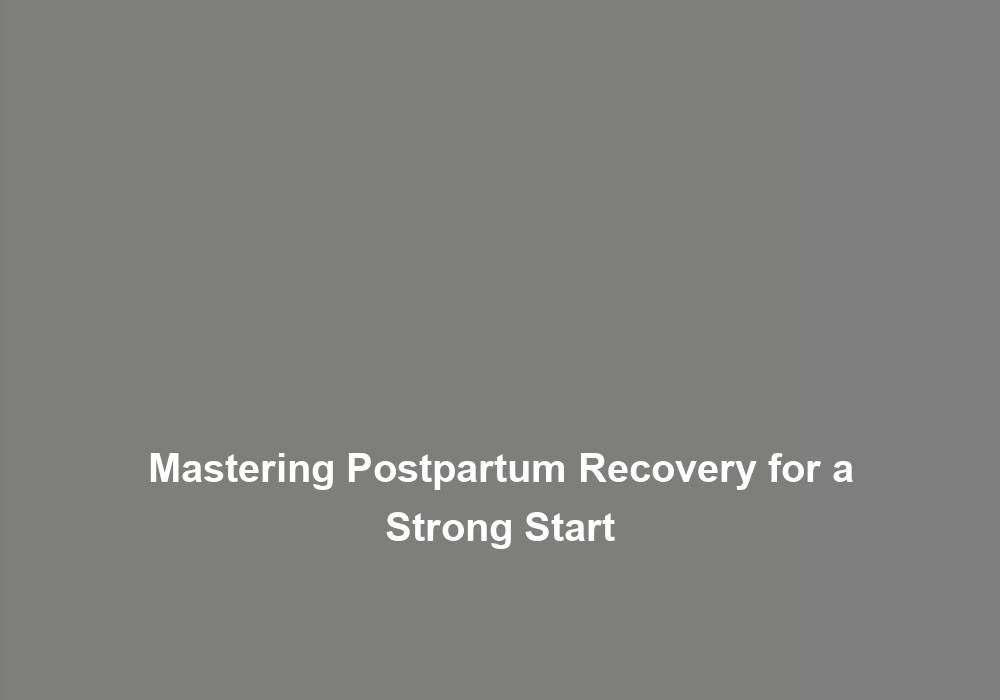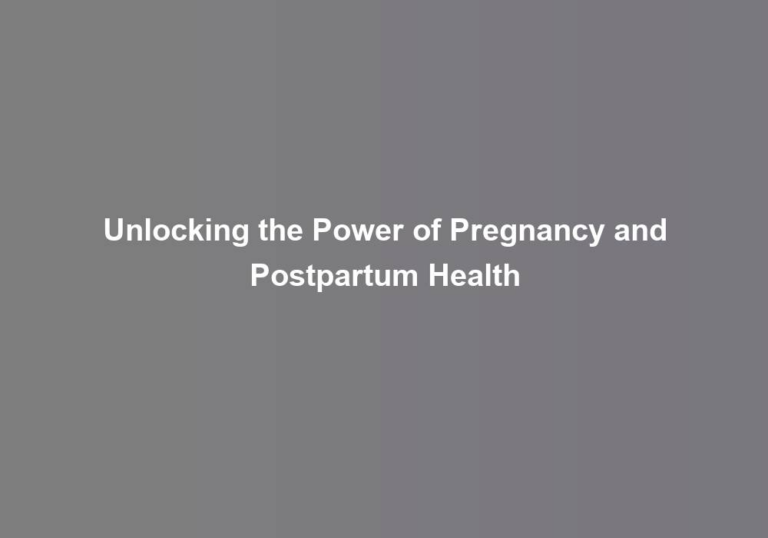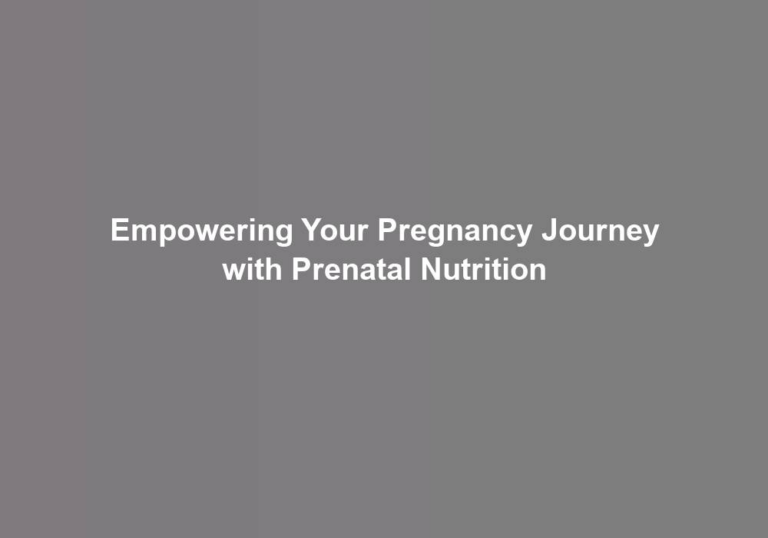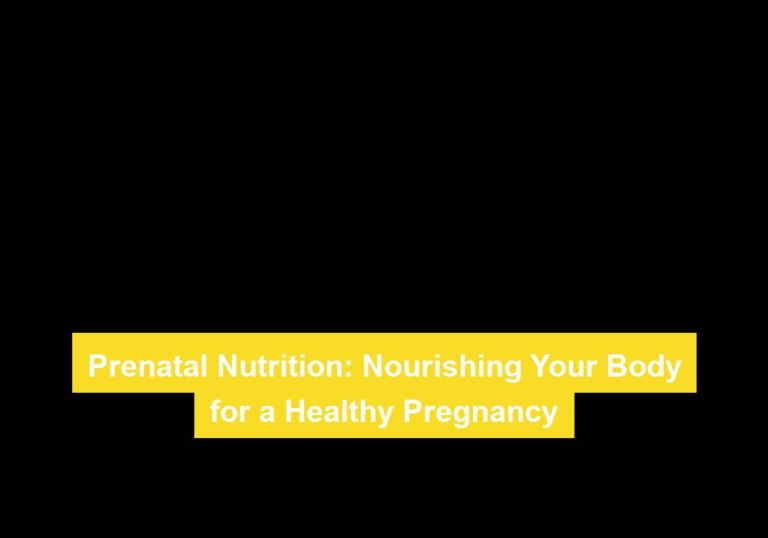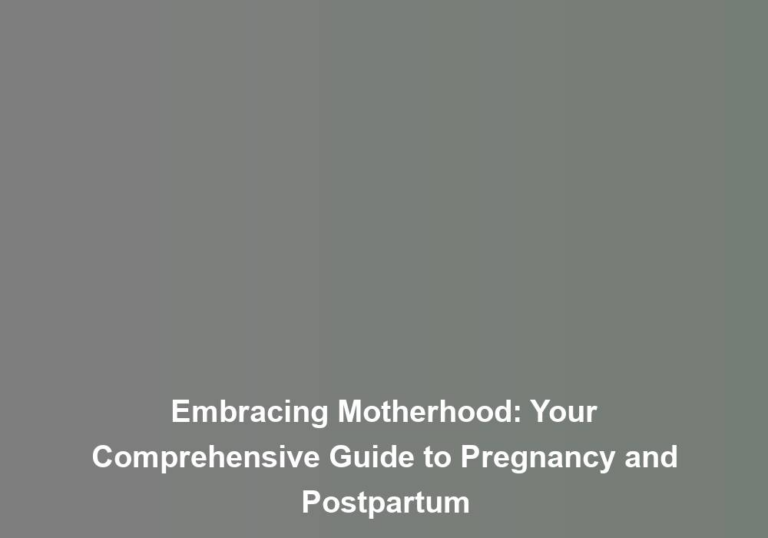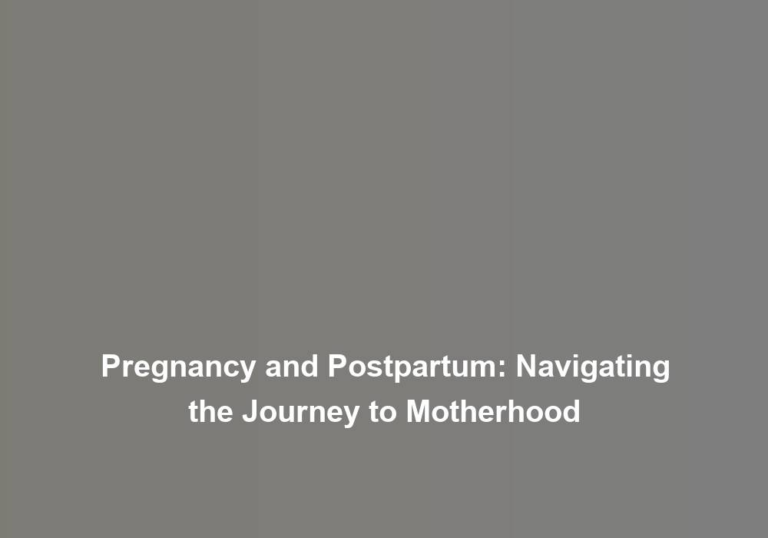Mastering Postpartum Recovery for a Strong Start
YouG??ve just welcomed your newborn into the world, and now itG??s time to focus on your own recovery. Postpartum recovery is a crucial phase that sets the foundation for your well-being as you transition into motherhood. From physical healing to emotional support, mastering postpartum recovery is essential for a strong start on your motherhood journey. But where should you begin and what steps can you take to ensure a smooth recovery process? Well, letG??s start by addressing the importance of postpartum recovery and the key elements that contribute to a strong start for both you and your baby.
Importance of Postpartum Recovery
To ensure a strong start to motherhood, itG??s crucial to understand the importance of prioritizing postpartum recovery. The journey of pregnancy and childbirth is a remarkable experience, but it can also take a toll on your body and mental health. ItG??s essential to recognize that prioritizing your recovery is not a selfish act, but rather a fundamental aspect of self-care that will benefit both you and your baby in the long run.
Postpartum recovery is of utmost importance because it sets the foundation for your overall well-being. Your body has just undergone an incredible feat, and giving it the time and care it needs to heal is vital. Engaging in self-care practices such as proper nutrition, gentle exercise, and adequate rest can significantly impact your physical recovery. Additionally, taking the time to address your mental health is equally important. The postpartum period can bring about a whirlwind of emotions, and seeking support from loved ones or professionals can make a world of difference in your emotional recovery.
Nutritional Support for Healing
Now that youG??ve brought your beautiful baby into the world, itG??s crucial to prioritize your own recovery and healing. Nutritional support plays a key role in this process, providing your body with the essential nutrients it needs to heal and regain strength. LetG??s talk about the important nutrients, hydration, and foods that can aid in your postpartum recovery journey.
Essential Nutrients for Recovery
Support your bodyG??s recovery by ensuring youG??re getting essential nutrients for healing after childbirth. Adequate protein intake is crucial for tissue repair and recovery. Incorporate lean meats, poultry, fish, eggs, dairy, legumes, and nuts into your diet to support healing. Omega-3 fatty acids are also essential as they have anti-inflammatory properties, which can aid in reducing postpartum inflammation and supporting overall healing. Focus on consuming foods rich in omega-3s such as fatty fish (salmon, mackerel, sardines), flaxseeds, chia seeds, and walnuts. Additionally, consider speaking with a healthcare professional about the potential benefits of omega-3 supplements. Prioritizing these essential nutrients in your diet can support your bodyG??s healing process during the postpartum period, helping you feel strong and energized as you navigate this new chapter.
Hydration for Healing
Ensuring proper hydration is essential for supporting your bodyG??s healing process after childbirth. Your body has undergone significant changes, and adequate water intake is crucial for postpartum healing. Staying hydrated helps maintain electrolyte balance, which is essential for muscle function and overall health. Aim to drink at least 8-10 glasses of water per day, or more if youG??re breastfeeding. Proper hydration supports the healing of tissues, reduces the risk of urinary tract infections, and promotes optimal energy levels during this demanding time. Dehydration can hinder the recovery process, so listen to your bodyG??s signals and prioritize regular water intake. Remember, staying well-hydrated not only aids in physical healing but also supports your overall well-being as you navigate the joys and challenges of postpartum life.
Foods to Avoid
To support your healing process, itG??s important to be mindful of the foods to avoid during your postpartum recovery. Making wise dietary choices can significantly aid in your recovery and overall well-being. Here are some foods to avoid during postpartum recovery:
- Highly Processed Foods: These foods often contain high levels of unhealthy fats, sugars, and preservatives, which can hinder your bodyG??s healing process.
- Caffeine and Alcohol: Both can disrupt your sleep patterns and affect your energy levels, which are crucial for your recovery and caring for your newborn.
- Spicy and Gas-Inducing Foods: These can irritate your digestive system and cause discomfort, particularly if youG??ve had a cesarean section.
Being mindful of these dietary restrictions after childbirth can help promote a smoother and faster recovery, allowing you to focus on bonding with your new baby.
Physical Activity and Rest
As you navigate your postpartum recovery, itG??s important to strike a balance between physical activity and rest to support your bodyG??s healing process. Incorporating gentle movement and adequate rest can aid in your recovery. Engaging in restorative yoga can help in rebuilding strength and flexibility while also promoting relaxation. Focus on poses that gently engage your pelvic floor muscles, such as cat-cow stretches and supported bridge poses. These movements can help restore your pelvic floor, which is crucial after childbirth.
In addition to restorative yoga, incorporating gentle activities like walking and light stretches into your daily routine can be beneficial. Walking can help improve circulation, boost your mood, and gradually increase your stamina. ItG??s a low-impact way to ease back into physical activity post-birth. Gentle stretches can help alleviate muscle tension and promote flexibility.
While itG??s important to reintroduce physical activity, itG??s equally essential to prioritize rest. Your body has undergone significant changes, and it needs time to recover. Adequate rest is crucial for muscle repair, hormone regulation, and overall well-being. Listen to your body and give yourself permission to rest when needed. Finding a balance between activity and rest is key to a successful postpartum recovery. Remember, itG??s okay to take it slow and focus on gradual progress.
Emotional Well-being and Support
After focusing on balancing physical activity and rest, now letG??s address the crucial aspect of supporting your emotional well-being and finding the necessary support during your postpartum recovery. Your mental health is just as important as your physical recovery during this time. Here are some essential aspects to consider:
-
Self-care: Taking care of your mental health means taking care of yourself. Find moments to rest, reflect, and recharge. Whether itG??s a warm bath, a walk in nature, or simply taking a few deep breaths, prioritizing self-care can have a profound impact on your emotional well-being.
-
Open communication: ItG??s okay to feel overwhelmed or emotional after giving birth. DonG??t hesitate to communicate your feelings with your partner, family, or friends. Expressing your emotions can help alleviate the weight you may be carrying and enable your loved ones to better support you.
-
Building a support system: Surround yourself with a strong support system. Whether itG??s a postpartum support group, close friends, or family members, having people to talk to and lean on can make a significant difference in your emotional recovery. DonG??t be afraid to ask for help or seek professional support if needed.
Remember that taking care of your mental health is not a sign of weakness, but rather a sign of strength and self-awareness. You deserve to have the support and understanding you need during this crucial time.
Managing Postpartum Symptoms
YouG??ve just given birth, and now itG??s crucial to manage the postpartum symptoms you may be experiencing. From managing pain to supporting your emotional well-being and engaging in physical recovery exercises, there are various ways to navigate this period. ItG??s important to prioritize your well-being as you navigate these symptoms, and weG??re here to provide you with the support and guidance you need.
Pain Management Tips
New mothers often find relief from postpartum pain through a combination of gentle exercises, proper hydration, and over-the-counter pain medication as recommended by their healthcare provider. Here are some pain management tips to help you navigate this phase with more ease:
-
Gentle Exercises: Engage in light stretching, walking, and pelvic floor exercises to promote blood circulation and alleviate discomfort.
-
Proper Hydration: Drink plenty of water to support your bodyG??s healing process and reduce muscle tension, which can contribute to postpartum pain.
-
Relaxation Techniques: Practice deep breathing, meditation, or gentle yoga to help manage stress, ease muscle tension, and promote relaxation, which can aid in reducing postpartum pain.
Emotional Well-Being Support
Navigating the postpartum period can be emotionally challenging as you adjust to the physical and hormonal changes while managing postpartum symptoms. ItG??s important to prioritize your mental health during this time. Building a strong support network can provide the emotional balance you need. Surround yourself with understanding and empathetic individuals who can offer a listening ear and practical help. DonG??t hesitate to lean on your partner, family, friends, or seek professional support if needed. Self-care is crucial in maintaining emotional well-being. Take time for activities that bring you comfort and relaxation. Whether itG??s a warm bath, a walk in nature, or simply finding moments of quiet, prioritizing self-care can have a positive impact on your mental health. Remember, itG??s okay to ask for help and take time for yourself.
Physical Recovery Exercises
Transitioning into physical recovery after childbirth can be a gradual process, and incorporating gentle, targeted exercises can aid in managing postpartum symptoms and promoting overall well-being. To support your postpartum physical recovery, focus on the following:
-
Pelvic Floor Exercises: Strengthening your pelvic floor muscles is crucial for improving bladder control and supporting your pelvic organs. Kegel exercises are effective for this.
-
Core Strength: Engage in exercises that help rebuild your core strength, such as gentle abdominal contractions and pelvic tilts, to support your posture and overall stability.
-
Stretches and Mobility Exercises: Incorporating gentle stretches and mobility exercises can help reduce muscle tension and improve flexibility, especially in areas that may have become tight during pregnancy.
Remember to consult with your healthcare provider before starting any new exercise routine to ensure itG??s safe for your individual recovery.
Creating a Supportive Postpartum Plan
As you prepare for the arrival of your baby, itG??s crucial to develop a comprehensive postpartum plan that includes practical support and self-care strategies for a smooth recovery. Creating a supportive postpartum plan involves establishing a strong support network, focusing on postpartum care, maintaining nutritional balance, and incorporating restorative practices. HereG??s a useful table to help you organize your postpartum plan:
| Support Network | Self-Care Strategies |
|---|---|
| Family and friends | Gentle exercise |
| Postpartum doula | Nutrient-dense diet |
| Online support groups | Adequate hydration |
| Lactation consultant | Mindfulness practices |
| Mental health counselor | Daily rest periods |
Building a strong support network is essential for your postpartum journey. Lean on your family, friends, and consider hiring a postpartum doula or seeking support from online groups. Additionally, focus on your nutritional balance by consuming nutrient-dense foods and staying hydrated. Incorporating gentle exercise and mindfulness practices can aid in your physical and emotional recovery. Lastly, ensure that you carve out time for daily rest periods to facilitate restorative practices. By creating a comprehensive postpartum plan that encompasses these elements, you can set the stage for a strong and supported postpartum recovery. Remember, youG??re not alone in this journey, and with the right support and self-care strategies, you can navigate the postpartum period with confidence and resilience.
Conclusion
Now that you have the tools and knowledge to master your postpartum recovery, remember to be patient with yourself. Your body has gone through a lot, and it takes time to heal. Lean on your support system, focus on nourishing yourself, and listen to your bodyG??s needs. YouG??re on the path to a strong start, and with time and care, youG??ll feel like yourself again. Take it one day at a time and trust in the process. YouG??ve got this.

